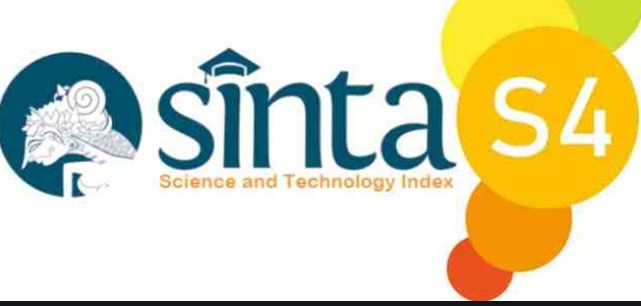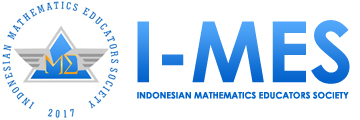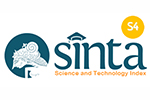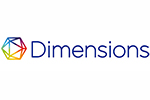CHATGPT’S IMPLICATIONS FOR MATHEMATICAL LITERACY IN MATHEMATICS EDUCATION STUDENTS AT PGRI YOGYAKARTA UNIVERSITY
DOI:
https://doi.org/10.36706/jls.v7i1.114Keywords:
ChatGPT, mathematical literacy, mathematics education, artificial intelligenceAbstract
The research employs a descriptive qualitative approach, with a population of 70 students from the 2022 and 2023 cohorts. A random sample of 26 respondents was selected, all of whom completed the questionnaire. Data were collected through a survey using a questionnaire related to the use of ChatGT in mathematics learning that examined aspects such as frequency of use, effectiveness, and the impact of ChatGPT on conceptual understanding and mathematics learning outcomes. The findings indicate that the majority of students use ChatGPT several times a week, primarily for completing assignments (27.8%) and solving mathematical problems (19.2%). A total of 69.2% of respondents found ChatGPT effective in supporting learning, particularly in solving problems, although 53.8% encountered difficulties in its use. Additionally, 57.7% of students reported significant benefits to their learning outcomes. Despite challenges related to the clarity of explanations provided by ChatGPT, this study suggests that AI can serve as a valuable support tool in enhancing students’ mathematical literacy. The findings are expected to provide comprehensive insights into ChatGPT’s capabilities and offer practical recommendations for educators and researchers to effectively integrate this technology into research writing and mathematics learning processes.
Downloads
References
Abedi, E. A. (2023). Tensions between technology integration practices of teachers and ICT in education policy expectations: implications for change in teacher knowledge, beliefs, and teaching practices. Journal of Computers in Education, 11(4), 1215–1234. https://doi.org/10.1007/s40692-023-00296-6
Almarashdi, H. S., Jarrah, A. M., Khurma, O. A., & Gningue, S. M. (2024). Unveiling the potential: A systematic review of ChatGPT in transforming mathematics teaching and learning. Eurasia Journal of Mathematics, Science and Technology Education, 20(12), 1–14. https://doi.org/10.29333/ejmste/15739
Bilynska, K., Markova, О., Chornobryva, N., Kuznietsov, Y., & Mingli, W. (2024). The power of digitalization in education: improving learning with interactive multimedia content. Revista Amazonia Investiga, 13(76), 188–201. https://doi.org/10.34069/ai/2024.76.04.15
Cirneanu, A. L., & Moldoveanu, C. E. (2024). Use of Digital Technology in Integrated Mathematics Education. Applied System Innovation, 7(4), 1–26. https://doi.org/10.3390/asi7040066
Darmayanti, R. (2024). Programmed learning in mathematics education before and after the pandemic: Academics integrate technology. Assyfa Learning Journal, 2(1), 40–56. https://doi.org/10.61650/alj.v2i1.126
Egara, F. O., & Mosimege, M. (2024). Exploring the Integration of Artificial Intelligence-Based ChatGPT into Mathematics Instruction: Perceptions, Challenges, and Implications for Educators. Education Sciences, 14(7), 1–21. https://doi.org/10.3390/educsci14070742
Hamidah, I., Ilma, R., Putri, I., & Pramuditya, S. A. (2024). How is the Implementation of Realistic Mathematics Education on Mathematical Literacy Skills ? A Systematic Literature Review. Mosharafa: Jurnal Pendidikan Matematika, 13(3), 741–756. https://doi.org/10.31980/mosharafa.v13i3.2089
Herlinda, R., Jelimbi, M., Adesfiana, Z. N., Bahari, Y., & Warneri, W. (2024). Identifying the Best Model for Implementing Technology-Based Education in Indonesian Schools. Edunesia: Jurnal Ilmiah Pendidikan, 5(2), 586–604. https://doi.org/10.51276/edu.v5i2.768
Hussain, S. (2024). Building Students Creative Thinking Ability Through STEM Integrated Curriculum : An Experiment on Elementary School Students. International Research Journal of Management and Social Sciences, V(1), 12–24.
Isiaku, L., Muhammad, A. S., Kefas, H. I., & Ukaegbu, F. C. (2024). Enhancing technological sustainability in academia: leveraging ChatGPT for teaching, learning and evaluation. Quality Education for All, 1(1), 385–416. https://doi.org/10.1108/QEA-07-2024-0055
Kasneci, E., Sessler, K., Küchemann, S., Bannert, M., Dementieva, D., Fischer, F., Gasser, U., Groh, G., Günnemann, S., Hüllermeier, E., Krusche, S., Kutyniok, G., Michaeli, T., Nerdel, C., Pfeffer, J., Poquet, O., Sailer, M., Schmidt, A., Seidel, T., … Kasneci, G. (2023). ChatGPT for Good? On Opportunities and Challenges of Large Language Models for Education. Learning and Individual Differences, 103(March). https://doi.org/10.1016/j.lindif.2023.102274
Kintoko, Waluya, S. B., Junaedi, I., & Dewi, N. R. (2022). Literasi Numerasi dan Berpikir Kritis: Systematic Literature Review. Prosiding Seminar Nasional Pascasarjana Universitas Negeri Semarang, 579–585.
Kurniati, T., & Wiyani, N. A. (2022). Pembelajaran Berbasis Information and Communication Technology pada Era Revolusi Industri 4.0. Jurnal Imiah Pendidikan Dan Pembelajaran, 6(1), 182–192. https://doi.org/10.23887/jipp.v6i1.41411
Lukas, B. A., & Yunus, M. M. (2021). ESL teachers’ challenges in implementing e-learning during COVID-19. International Journal of Learning, Teaching and Educational Research, 20(2), 330–348. https://doi.org/10.26803/IJLTER.20.2.18
Madyaratri, D. Y., Wardono, & Prasetyo, A. P. B. (2019). Kemampuan Literasi Matematika Siswa pada Pembelajaran Problem Based Learning dengan Tinjauan Gaya Belajar. PRISMA, Prosicing Seminar Nasional Matematika, 2, 648–658.
Maulida, L., Nurossobah, P., Aura, B. A., Nengsih, E. D., & Rasilah, R. (2024). Improving The Effectiveness of Mathematics Learning Through Artificial Intelligence: Literature Review. Journal of General Education and Humanities, 3(4), 323–338. https://doi.org/10.58421/gehu.v3i4.267
Moundridou, M., Matzakos, N., & Doukakis, S. (2024). Generative AI tools as educators’ assistants: Designing and implementing inquiry-based lesson plans. Computers and Education: Artificial Intelligence, 7(July), 100277. https://doi.org/10.1016/j.caeai.2024.100277
Murcahyanto, H., & Mohzana, M. (2023). Evaluation of Character Education Program Based on School Culture. IJE: Interdisciplinary Journal of Education, 1(1), 53–67. https://doi.org/10.61277/ije.v1i1.8
OECD. (2023). Results from PISA 2022: Indonesia. OECD Publishing, 1–8.
Patac, L. P., & Patac, A. V. (2025). Using ChatGPT for academic support: Managing cognitive load and enhancing learning efficiency- A phenomenological approach. Social Sciences and Humanities Open, 11(January), 101301. https://doi.org/10.1016/j.ssaho.2025.101301
Pepin, B., Buchholtz, N., & Salinas, U. (2025). A Scoping Survey of ChatGPT in Mathematics Education. In Digital Experiences in Mathematics Education (Issue August 2024). Springer International Publishing. https://doi.org/10.1007/s40751-025-00172-1
Qawaqneh, H., Ahmad, F. B., & Alawamreh, A. R. (2023). The Impact of Artificial Intelligence-Based Virtual Laboratories on Developing Students’ Motivation Towards Learning Mathematics. International Journal of Emerging Technologies in Learning, 18(14), 105–121. https://doi.org/10.3991/ijet.v18i14.39873
Salami, O. O., & Spangenberg, E. D. (2025). Assessing the role of online mathematics tools in enhancing student learning and engagement. Educational Technology Quarterly, 2025(1), 67–85. https://doi.org/10.55056/etq.874
Siswanto, D. H., Alghiffari, E. K., & Andriyani. (2024). Pengembangan Alat Evaluasi Berpikir Kreatif Berbasis Aplikasi Microsoft Sway pada Materi Teorema Pythagoras. Jurnal Praktik Baik Pembelajaran Sekolah Dan Pesantren, 3(02), 73–84. https://doi.org/10.56741/pbpsp.v3i02.590
Sugiyono. (2019). Metode Penelitian Kuantitatif, Kualitatif, dan R&D. Bandung: Alfabeta.
Wahyuni, N., Alam, S. R., Alghiffari, E. K., & Siswanto, D. H. (2024). Harnessing TikTok for learning: Examining its impact on students’ mathematical numeracy skills. Journal of Professional Teacher Education, 02(02), 48–56. https://doi.org/10.12928/jprotect.v2i2.945
Wardat, Y., Tashtoush, M. A., AlAli, R., & Jarrah, A. M. (2023). ChatGPT: A revolutionary tool for teaching and learning mathematics. Eurasia Journal of Mathematics, Science and Technology Education, 19(7), 1–18. https://doi.org/10.29333/ejmste/13272

Downloads
Published
How to Cite
Issue
Section
Citation Check
License
Copyright (c) 2025 Kintoko Kintoko, Stevanus Budi Waluya, Iwan Junaedi, Nuriana Rachmani Dewi, Deny Hadi Siswanto

This work is licensed under a Creative Commons Attribution-NonCommercial-ShareAlike 4.0 International License.











